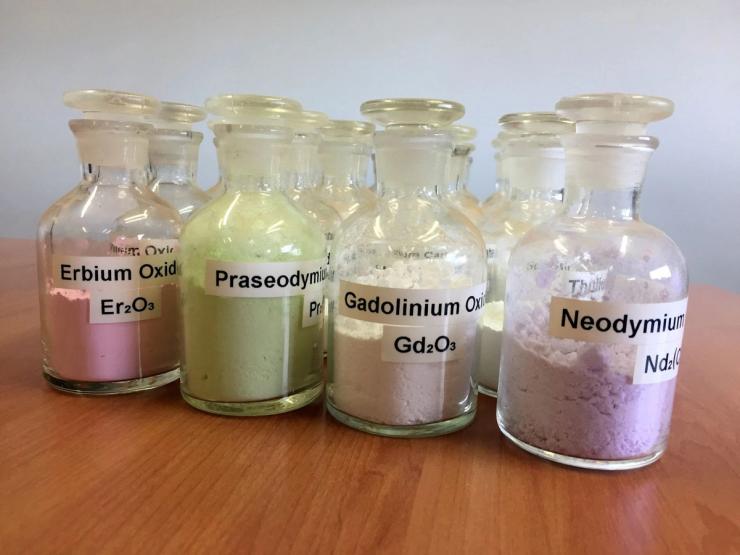Amena’s view
Saudi Crown Prince Mohammed bin Salman’s remarkable trip to Washington to meet with US President Donald Trump was dominated by headlines of big numbers and mega deals — $1 trillion pledged in investments, a defense agreement, the sale of fighter jets and cutting-edge chips. These are no doubt significant steps in deepening the two countries’ relationship, underlining a shift in US priorities in the Middle East from conflict to commerce.
Yet buried beneath those eye-catching pledges were two others — one on civil nuclear cooperation, the other a framework on critical minerals — that could ultimately have even bigger impact, driving a strategic realignment that will reshape the global balance of power when it comes to energy.
For Washington, the twin agreements reflect a shift in course on energy strategy. Under the Biden administration, US strategy largely centered on the energy transition — electrification, renewables, and climate diplomacy. That was not only unrealistic, clashing with the interests of friendly oil exporters, but it also overlooked a crucial geopolitical reality: Controlling the materials and technologies underpinning the transition is just as important as accelerating it. China understood that critical insight early and moved to dominate the processing of rare earth minerals, critical battery metals, and increasingly, nuclear supply chains.
Saudi Arabia, meanwhile, is following a more pragmatic approach of investing in all types of energy: By 2030, the kingdom is targeting generating 50% of its domestic demand from gas and the other half from renewable energy. Under a transformed US policy approach with Trump in office, Washington and Riyadh can once again see eye to eye and are positioning themselves as twin guardians of global energy security.
The newly signed Critical Minerals Strategic Framework clearly signals this. At its heart is a plan to establish a Western-aligned supply chain for rare earths, a sector where China maintains overwhelming dominance. A proposed joint refinery between US industry and Saudi Arabia’s Maaden could become the backbone of that effort. If successful, it would help diversify supply in both the defense and technology markets. But this doesn’t mean that Saudi Arabia will abandon cooperation deals with China: The kingdom believes a delicate balance needs to be struck between its traditional Western allies which supply its defense, and Asian ones which fuel its economic growth.
The second agreement signed in the US was a civil nuclear cooperation framework, which may prove even more significant. For years, Saudi Arabia has sought nuclear energy to support domestic growth, free up oil for export, and position itself as a long-term energy leader. Previous US hesitancy centered on proliferation risks and concerns about potential enrichment capabilities. But with Asian states aggressively courting Riyadh with turnkey nuclear offerings, Washington recalibrated.
By committing to work with Saudi Arabia, the US ensures both influence and alignment. The strategic partnership deal creates opportunities for US nuclear energy companies to participate in projects and also help in the transfer of advanced US technologies, including nuclear power plants. Challenges remain — it remains to be seen if there will be a final signing of a so-called “123 Agreement,” which includes clauses around limiting Saudi Arabia’s right to enrich uranium domestically and has an extension inspection regime.
Still, the main takeaway from the crown prince’s visit is a relationship no longer confined to trading oil for security. Instead, the US-Saudi alliance is evolving into a shared industrial and strategic platform spanning nuclear reactors, mineral refining, AI-driven manufacturing, energy infrastructure, and advanced defense systems.
That partnership sends a clear global message: The energy transition and energy security are not competing agendas, and are instead mutually dependent pillars of stability.
So even as the spectacle of last week fades, if the energy deals announced are implemented in full, we might be entering a new chapter of the US-Saudi relationship, one which focuses on atoms and minerals rather than oil.
Amena Bakr is the Head of Middle East Energy & OPEC+ research at Kpler, an independent global commodities trade intelligence company.
Notable
- What’s in those rare earth deals between the US and Saudi? Gracelin Baskaran, director of the Critical Minerals Security Program at the Washington-based Center for Strategic and International Studies, explains.
- The US and Saudi Arabia struck agreements on defense, semiconductors, nuclear power, and more during the crown prince’s November visit to the White House. Experts at the Atlantic Council unpack the deals and predict what to expect next.


